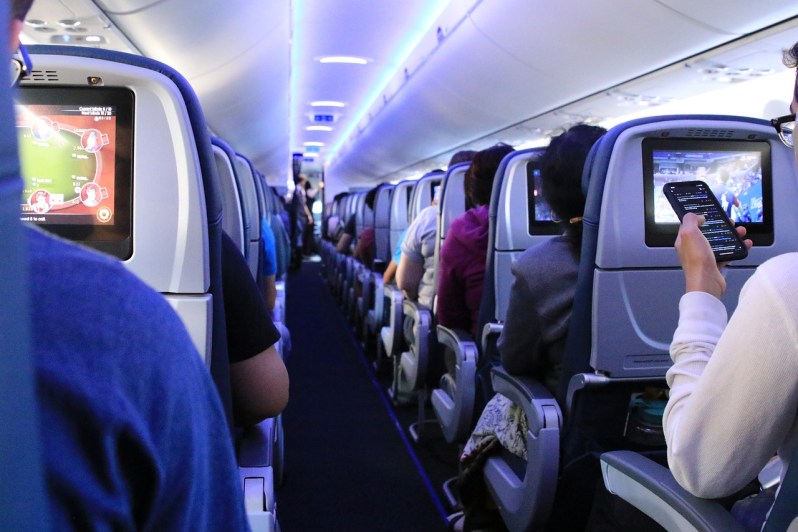
Jet lag, the dreaded consequence of crossing multiple time zones, can wreak havoc on your body and shake up your travel plans. From headaches, to fatigue, to insomnia, jet lag can leave you feeling drained, making it difficult to enjoy your vacation. However, with a few simple adjustments, you can minimize the effects of jet lag and start enjoying your travels in no time. This is how to get over jet lag.
How long can jet lag last?

While jet lag symptoms are generally temporary and tend to improve as your body adjusts to the new time zone, the duration of jet lag can vary from person to person. A few factors that influence the duration of jet lag include:
- How many time zones you cross: The more time zones you cross, the more severe your jet lag symptoms are likely to be due to the disruption of your body’s internal clock.
- Which direction you are traveling: Many people report that traveling eastward tends to result in more severe jet lag symptoms. This is because traveling west prolongs your normal internal clock, while traveling eastwards runs in direct opposition to your internal clock.
- Your overall health: Some people are more susceptible to jet lag than others, with factors like age, sleep quality, and overall health influencing how quickly you will adjust to the new time zone. Additionally, certain medical conditions such as sleep disorders, depression, and anxiety, can all make jet lag symptoms worse and prolong the recovery process.
The Mayo Clinic reports that as a rule of thumb, it takes about a day to recover for each time zone you cross during your journey.
How to get over jet lag: 6 quick tips

Jet lag is no walk in the park. It often causes uncomfortable symptoms such as headache, fatigue, insomnia, difficulty concentrating, mood swings, stomach issues, and lack of appetite. Your body will eventually adjust on its own, but there are a few things you can do before and after your flight to fast-track the process.
1. Gradually adjust your sleep schedule

One of the most effective ways to get over jet lag is to gradually adjust your sleep schedule to align with the time zone of your final destination. In the days leading up to your trip, try to shift your bedtime and wake-up time by 15-30 minutes every day, moving closer to the local time at your destination. Gradually adjusting your daily schedule can help to reset your body’s internal clock and make the transition easier.
To figure out exactly how to adjust your schedule, you can take advantage of free online calculators or download jet lag apps such as Timeshifter.
2. Stay hydrated

Staying hydrated is essential for combating jet lag and promoting overall well-being during your travels. Dehydration can make jet lag symptoms worse, so make sure you are drinking water before, during, and after your flight. In addition to keeping up with water intake, you will want to avoid dehydrating drinks such as alcohol or coffee during your plane ride.
3. Get moving

While lying in your hotel bed may be appealing, it’s important to get out and get moving. Consider incorporating light exercise, such as walking, stretching, or yoga, into your daily routine to combat fatigue. If you are on vacation, take advantage of opportunities to explore your surroundings on foot or by bike.
4. Sleep at appropriate times

If you arrive at your destination during the day, try to resist the urge to take a nap. Although this may make you feel rested initially, it can make it harder to sleep later on in the night. You will also want to make sure you are sleeping at the appropriate times. If you aren’t tired when it comes time to sleep, consider using sleep aids like melatonin or bringing along an eye mask to completely black out your surroundings.
5. Consider caffeine

Consuming caffeine can help you to stay away during the daytime hours. In a recent study, it was reported that consuming 300mg of caffeine may combat jet lag-induced daytime sleepiness in passengers traveling eastward. However, you will want to limit your caffeine intake in the evening, as this can make falling asleep more difficult.
Caffeine is also found in certain sodas, energy drinks, tea, and chocolate, in addition to coffee.
6. Strategic light exposure

One of the best ways to combat jet lag is to use light to your advantage. Light and darkness play a huge role in regulating your body’s internal clock, so use them to your advantage when trying to get over jet lag. When you arrive at your destination, expose yourself to natural sunlight during the daytime. This signals to your body that it is time to be awake.
On the other hand, dimming the lights and minimizing artificial light exposure in the evening can help you prepare for sleep.
Conquer jet lag and enjoy your trip

While jet lag is often an unavoidable aspect of long-distance travel, it doesn’t have to ruin your vacation. By following these tips on how to get over jet lag, you will be enjoying your trip in no time! In the end, be patient with yourself and give yourself time to adjust to the new time zone. Jet lag is a natural consequence of traveling long distances, and it may take several days for your body to acclimate to the new schedule. So, listen to your body’s cues, prioritize self-care, and avoid overcommitting to activities to give your body time to rest and recharge.
Editors' Recommendations
- iPhone photography tips: How to take better travel photos on your phone
- How to renew Global Entry (and when you should do it)
- The government just banned this airline practice every traveler hates
- When is the best time to visit Italy? This is when you should go
- Here’s how much it will cost you to charter a Four Seasons private jet



